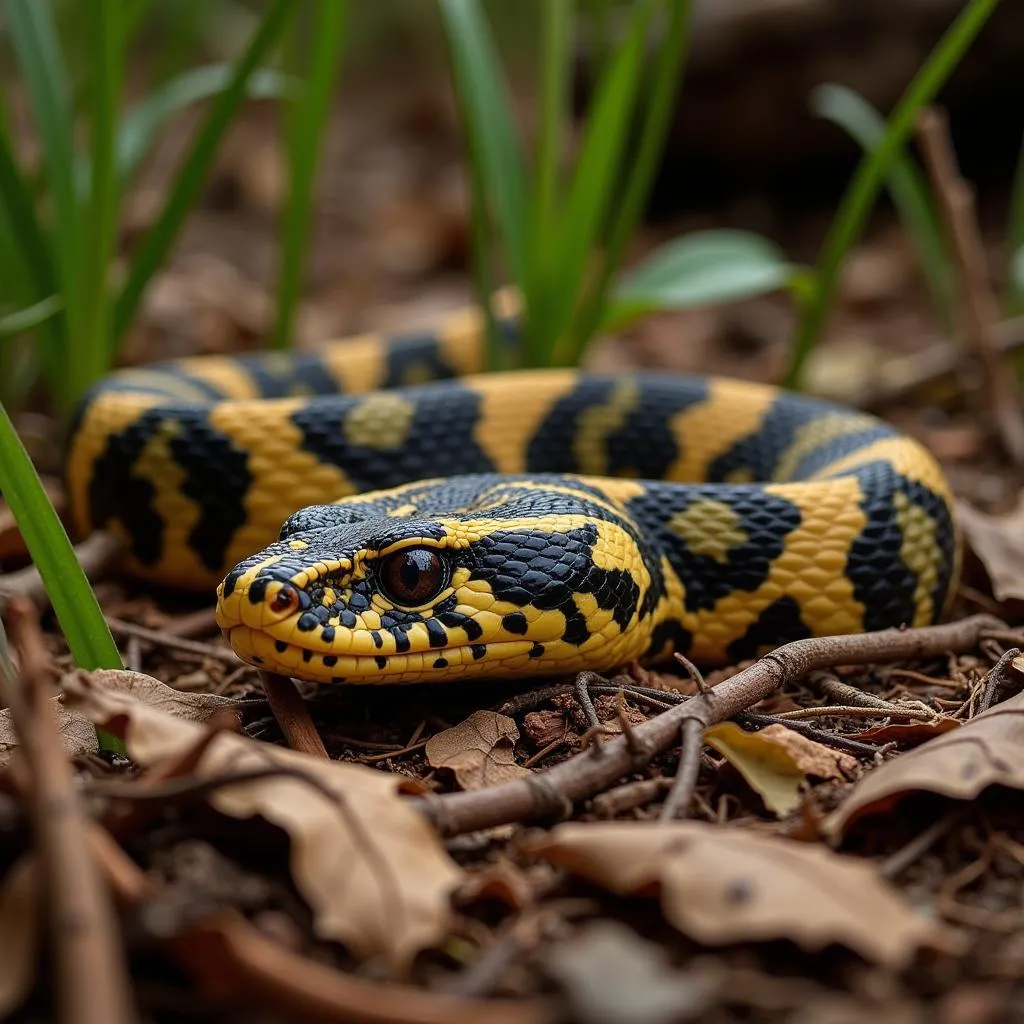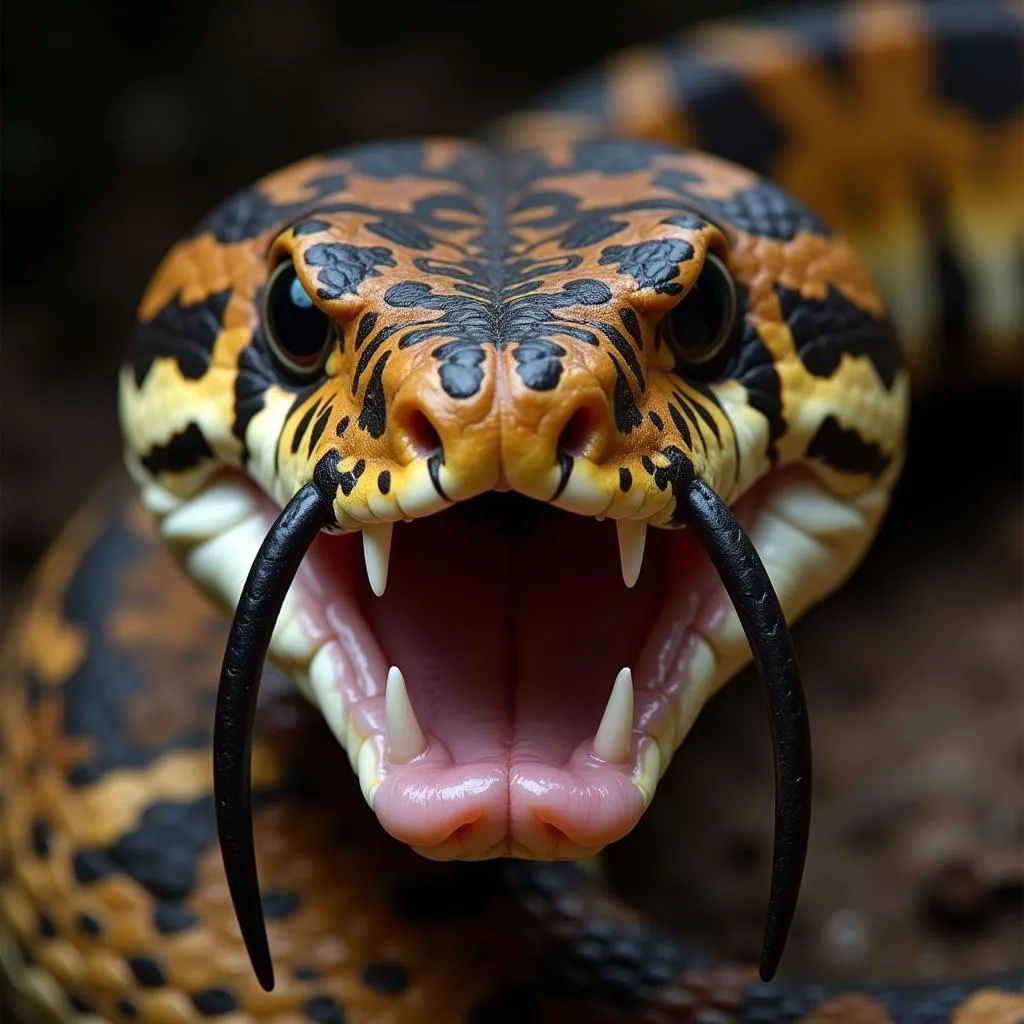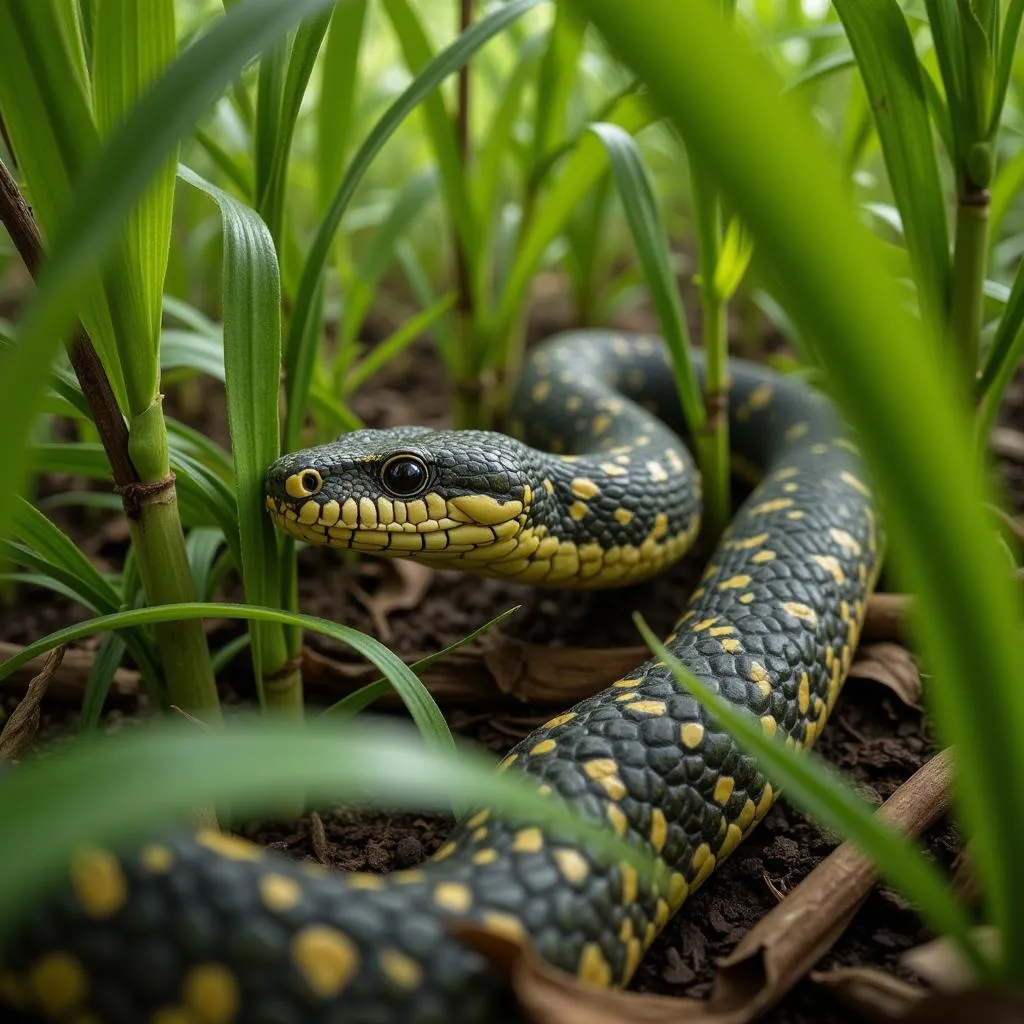The African Gaboon Viper: A Master of Disguise and Venom
The African Gaboon Viper, scientifically known as Bitis gabonica, is a highly venomous snake found in the rainforests and savannas of sub-Saharan Africa. Renowned for its striking camouflage and potent venom, this elusive serpent has captivated the attention of both researchers and wildlife enthusiasts alike.
A Master of Camouflage: Blending Seamlessly with the Forest Floor
 African Gaboon Viper camouflaged in leaf litter
African Gaboon Viper camouflaged in leaf litter
The African Gaboon Viper is a master of disguise. Its intricate patterns of brown, tan, black, and pink scales create a remarkable resemblance to the fallen leaves and dappled sunlight of the forest floor. This camouflage is highly effective in ambushing unsuspecting prey, allowing the snake to remain virtually invisible until it strikes. Their large, triangular-shaped heads further enhance their camouflage, breaking up their outline and making them even more difficult to spot.
A Bite to be Reckoned With: The Potency of Gaboon Viper Venom
 Close-up of African Gaboon Viper fangs
Close-up of African Gaboon Viper fangs
The African Gaboon Viper possesses the longest fangs of any venomous snake, reaching up to 2 inches in length. These fangs are hinged, folding back against the roof of the mouth when not in use. When the snake strikes, its fangs inject a large amount of cytotoxic venom, a potent cocktail of toxins that attack cells and tissues.
“The Gaboon Viper’s venom is a complex mixture designed to rapidly incapacitate its prey,” explains Dr. Joseph Amani, a leading herpetologist specializing in African venomous snakes. “It affects the cardiovascular system, blood clotting, and nervous system, leading to a range of debilitating symptoms.”
The Silent Hunter: Ambush Predator of the African Forests
Gaboon Vipers are primarily nocturnal hunters, relying on their camouflage and patience to secure their meals. They are ambush predators, remaining perfectly still for extended periods, patiently waiting for unsuspecting prey to wander within striking distance. Their diet consists mainly of small mammals, such as rodents and shrews, but they are also known to prey on birds, frogs, and other snakes.
A Gentle Giant? Temperament and Conservation Status
Despite their formidable appearance and venomous nature, African Gaboon Vipers are generally docile snakes. They are not known for their aggression and will often choose to remain motionless or retreat rather than attack. Bites on humans are rare and usually occur when the snake feels threatened or is accidentally stepped on.
 African Gaboon Viper partially hidden in grass
African Gaboon Viper partially hidden in grass
The African Gaboon Viper is listed as a species of Least Concern by the International Union for Conservation of Nature (IUCN). However, habitat loss due to deforestation and human encroachment poses a potential threat to their populations. It is crucial to promote conservation efforts that protect their natural habitats and ensure the long-term survival of this remarkable species.
Conclusion: Respecting the Power and Beauty of the Gaboon Viper
The African Gaboon Viper stands as a testament to the incredible diversity and adaptability of life on Earth. While its venomous bite demands respect and caution, its stunning beauty, intricate camouflage, and important role in the ecosystem are equally deserving of admiration. By fostering a deeper understanding and appreciation for this often-misunderstood creature, we can contribute to its conservation and ensure that it continues to thrive in the wilds of Africa for generations to come.
FAQs About the African Gaboon Viper:
- What should I do if I get bitten by a Gaboon Viper? Seek immediate medical attention. Antivenom is available, and prompt treatment is essential for survival.
- How long do Gaboon Vipers live? In the wild, their lifespan is estimated to be around 10-15 years.
- Are Gaboon Vipers aggressive towards humans? No, they are generally docile and prefer to avoid confrontation. Bites usually occur due to accidental encounters.
- What is being done to protect Gaboon Vipers? Conservation efforts focus on habitat preservation and raising awareness about the importance of these snakes.
- Where can I learn more about African Gaboon Vipers? Reputable sources include conservation organizations, herpetological societies, and scientific publications.
For any inquiries or assistance, please don’t hesitate to contact us:
Phone Number: +255768904061
Email: kaka.mag@gmail.com
Address: Mbarali DC Mawindi, Kangaga, Tanzania.
Our dedicated customer support team is available 24/7 to assist you.

